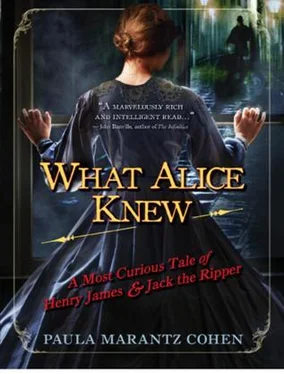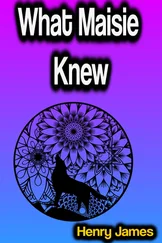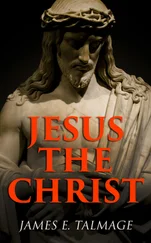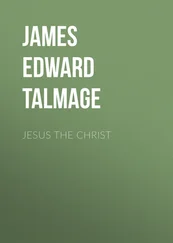Paula Marantz Cohen
What Alice Knew:
A Most Curious Tale of Henry James and Jack the Ripper
To Alan,
my first story man
My thanks to the following people who offered background, ideas, or editing help with the manuscript: Simeon Amon, Victoria Amon, Rosetta Marantz Cohen, Maria Esche, Michael Harris-Peyton, Peter Lynch, Neeti Madan, and Jean-Michel Rabaté.
I owe a special debt of gratitude to my husband, Alan Penziner, and to my children, Sam and Kate Penziner, who provided useful comments and unfailing, if sometimes exasperated, support.
I wrote this book in order to bring to life historical characters and events that I have come to know through my reading. But as this is a work of fiction, imaginative material has necessarily been added and factual material altered to accommodate the plot.
London. 1888.
Henry James was drunk.
The room where he was dining looked familiar, but he could not place it. There was an oak sideboard, elaborately carved, and a cupboard containing a collection of fine porcelains. The plate was bone china, the silver heavy and apparently old. There was a landscape (was it Corot?) near the door, a set of prints (Rowlandson?) on the side wall, and a portrait by someone of talent over the mantel. It was a good house, though how good was a matter of whether the portrait was by van Dyck of an esteemed ancestor or by Sargent of a more contemporary personage (he was too bleary-eyed to look), and whether the silver had been passed down or purchased secondhand.
Henry was seated at a large, well-appointed table at which he vaguely recognized some of the guests. Mrs. Drummond was to his left, and Lady Dalrymple to his right (unless it was the other way around); Oscar Wilde was gesticulating at the far end; and across was Edmund Gosse, if it was Gosse, bent over his soup. There were others he was certain he knew, except he could not summon up their names. Not that it mattered. Real places and people were the germs that fertilized his novels, but a certain level of distractedness (helped by a certain quantity of wine) left an opening for the imagination.
“What do you think, Mr. James?” asked the woman to his left—Lady Dalrymple or Mrs. Drummond—the face blurred in his vision. He had almost finished his soup, a very nice beef bouillon, and would have liked to answer the lady (whoever she was) if only he knew what she was talking about.
Fortunately they were interrupted by Wilde, engaged in one of his familiar critiques of someone who wasn’t there.
“I can’t say I think much of Stevenson’s work,” Wilde pronounced. “It’s thin. The stage adaptation of Jekyll and Hyde owes its success to the actors; the book lacks depth and amplification. If the man weren’t so ill, I would be harsher. And if he were dead, which they say he will be in a year, I would be more generous.”
“Dead? Who’s dead?” shouted an elderly gentleman across the table.
“No one, yet,” said Wilde, “but in time, all of us. Though some sooner than others,” he added, sotto voce, to the handsome young man seated next to him.
Henry pushed away his soup. Secretly he agreed with Wilde about Stevenson. How was it that Louis had gotten his Jekyll and Hyde produced for the stage? Henry’s lifelong dream was to have his own work adapted for performance, but when he approached the theater people, they said his novels were not dramatic. This was nonsense; they were extremely dramatic if one read them carefully.
“Stevenson’s tale chilled my blood,” asserted one of the pretty, more impressionable women.
“Then your blood, exquisite though it is, is easily chilled, madam,” chided Wilde. “Lopping a man in half so that the animal is turned loose is an obvious sort of conceit and entirely unrealistic. Much better if the monster doesn’t look like a monster at all, but like an angel, the point being that the worst atrocities are committed not by animals but by men, and often men of apparent refinement.”
A stout American woman in heavy brocade looked up from her soup. “I can always tell a person by his face,” she announced, casting a supercilious glance around the table.
Henry winced. Although he had lived in London for years, he still took the arrogant stupidity of his countrymen personally. The stout American woman was married to an oil man or a lumber man, referred to as though they were made of these substances, which perhaps they were. One never saw the men, only their wives, who were everywhere, elbowing their way into the best houses.
“I pride myself on my ability to read faces,” the American woman continued, raising her chin to reveal a set of emeralds whose vulgar splendor caused Henry to avert his gaze. “I have only to look in a person’s eyes, and I know his character.” She cast a flirtatious glance in the direction of the handsome young man sitting next to Wilde, who raised an eyebrow back.
“I question your infallibility, madam,” countered Wilde. “The best actors are always the best villains. And evil often comes in seductive guises. Think of Duessa in Spenser’s Faerie Queene , her monstrous nether parts hidden under beautiful drapery.”
“Nether parts—where?” demanded the elderly gentleman, excitedly.
“I have no idea what you are referring to, Mr. Wilde.” The American woman shrugged. “But I am certain that it would not change my mind.”
Henry drained his glass. There it was: the most dire attribute of the new money was its complacency. It wore its ignorance like a badge of honor.
“What do you think, Mr. James?” asked the woman to his left. He wished she would leave him alone, though she was to be commended for valuing his opinion. He took a sip from the glass in front of him that had been refilled. “I don’t believe in the existence of evil per se .” He spoke slowly, taking care not to slur his words. “I believe that men, and women”—he nodded politely to the woman—“may be prompted to commit acts of thoughtlessness, even cruelty, in pursuit of some greatly desired object, and that repetition of such acts, given the persistence of certain influences, may create a kind of reflex of mind. The act, in short, grows habitual; the conscience dulls. One might call this the evolution of a depraved personality. But that would be an oversimplification.”
“Everything for you is an oversimplification,” noted Wilde.
“But you’ve written about evil, haven’t you, Henry?” asked Gosse (if it was Gosse).
“Evil, as I conceive it, is in the effects of the action, not inherent in the perpetrator,” Henry recited, surprised to be able to put it so succinctly.
“Your position ignores the more heinous sorts of human cruelty,” countered Wilde. “The Whitechapel murders, for example. Are you going to argue that the perpetrator is not an evil man? That his murders are the result of complex motivation?”
“It’s not the sort of thing that interests me,” said Henry shortly, starting in on the oysters that had made an appearance on his plate.
“You are wrong not to be interested in those poor women,” said the female to his left. “That’s precisely why they continue to be killed. If it was one of us, the perpetrator would have been caught long ago.”
Henry thought that his sister, Alice, would say the same thing, and the thought momentarily humbled him. He bowed his head, finishing the oysters and watching as a portion of sweetbreads au jus replaced them.
Читать дальше












